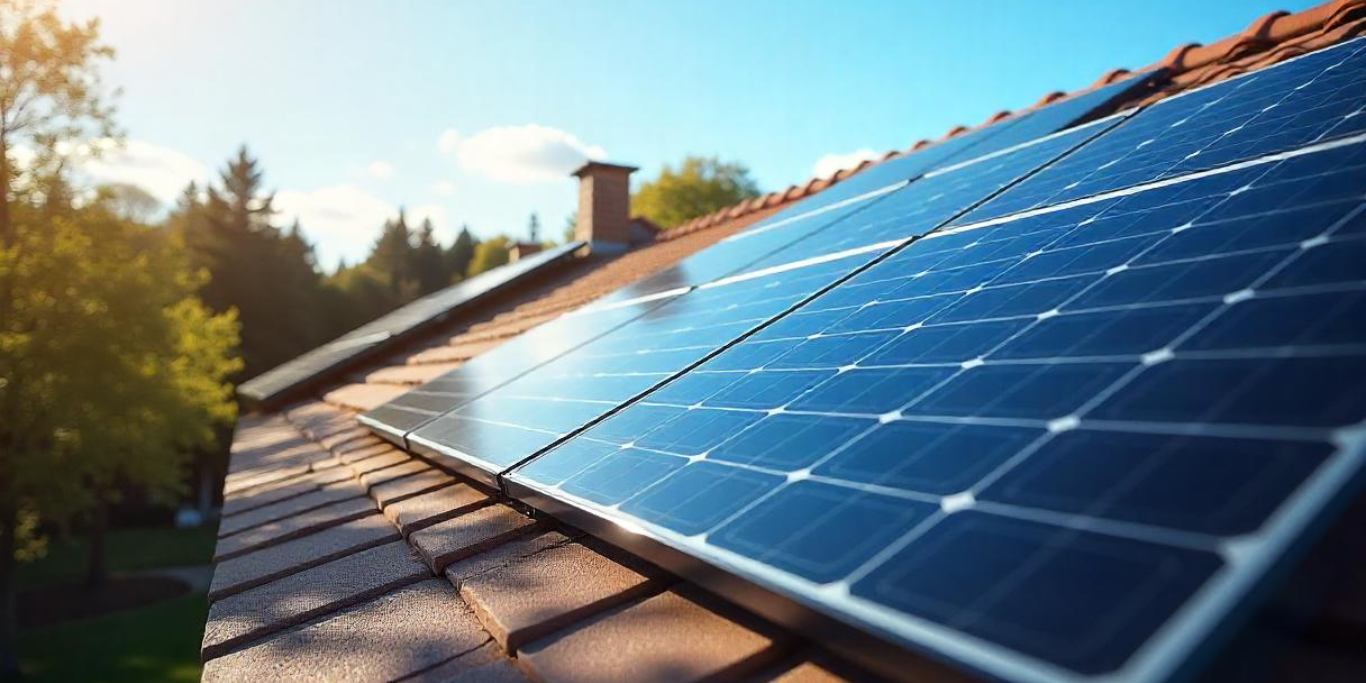5 Types of Solar Panels: Which One Is Right for You?
As solar energy continues to grow in popularity, choosing the right type of solar panel is crucial for maximizing efficiency and savings. There are several different types of solar panels, each with unique characteristics, advantages, and ideal applications. In this guide, we’ll explore the main types of solar panels, their benefits, and how to select the best one for your needs.
Understanding Solar Panel Technology and Its Different Types
Before diving into the different types of solar panels, it’s important to understand how they work. Solar panels convert sunlight into electricity using photovoltaic (PV) cells. The efficiency, cost, and durability of a solar panel depend on the type of PV technology used. Choosing the right panel depends on factors like budget, energy needs, and available installation space.
1. Monocrystalline Solar Panels
Overview: Monocrystalline solar panels are made from a single continuous crystal structure, giving them a sleek black appearance and high efficiency.
Advantages:
- Highest efficiency rates (15-22%)
- Space-efficient, requiring fewer panels for the same power output
- Long lifespan (25+ years)
- Better performance in low-light conditions
Best for: Homeowners with limited roof space or those looking for high efficiency and durability.
2. Polycrystalline Solar Panels
Overview: Polycrystalline panels are made from multiple silicon fragments melted together, resulting in a blue-hued panel with slightly lower efficiency.
Advantages:
- More affordable than monocrystalline panels
- Good efficiency (13-17%)
- Durable and long-lasting
Best for: Budget-conscious buyers looking for a balance between cost and efficiency.
3. Thin-Film Solar Panels
Overview: Thin-film panels are made by layering photovoltaic materials onto a substrate, making them lightweight and flexible.
Advantages:
- Lightweight and flexible design
- Works well in high temperatures and shaded areas
- Lower production costs
Disadvantages:
- Lower efficiency (10-12%)
- Requires more space for the same power output
- Shorter lifespan compared to crystalline panels
Best for: Large commercial installations, portable solar applications, or locations with extreme temperatures.
4. Bifacial Solar Panels
Overview: Bifacial panels can generate electricity from both sides by capturing reflected sunlight.
Advantages:
- Higher energy output due to dual-sided absorption
- Increased efficiency (up to 25%) in reflective environments
- More durable with tempered glass on both sides
Best for: Commercial and industrial projects or areas with highly reflective surfaces (e.g., snowy or sandy environments).
5. Passivated Emitter and Rear Cell (PERC) Solar Panels
Overview: PERC panels improve efficiency by adding a reflective layer to enhance light absorption.
Advantages:
- Higher efficiency than standard monocrystalline panels
- Improved performance in low-light conditions
- Reduced heat absorption, leading to better performance
Best for: Residential and commercial solar installations seeking high performance and efficiency.
How to Choose the Right Type of Solar Panel?
When selecting the best types of solar panels, consider the following factors:
- Efficiency Needs: If space is limited, opt for high-efficiency monocrystalline or PERC panels.
- Budget: Polycrystalline panels are more affordable while still offering good performance.
- Space Availability: Thin-film panels may be a better option for large commercial projects.
- Climate Conditions: If your location has high temperatures, thin-film or PERC panels can perform better.
Did You Know You Can Be a Digital Nomad Using Solar Energy?
If you’re interested in sustainable energy solutions, you might also want to explore how solar energy can power a mobile lifestyle. Whether you’re a remote worker, camper, or van lifer, portable solar panels allow you to stay connected and energy-independent wherever you go. Learn more about how nomad solar energy can support a flexible and sustainable way of living here. Don’t miss it!
Types of Solar Panels: Conclusion
Understanding the different types of solar panels is essential for making an informed decision. Whether you prioritize efficiency, cost, or flexibility, there’s a solar panel type that fits your needs. Investing in the right solar technology will maximize your energy production and long-term savings.
Are you ready to explore the best solar panel options for your home or business? Check out our solar energy solutions and find the perfect fit today!
Stay informed!
Want to stay updated on the latest developments in smart grids and their impact on energy efficiency? Visit our blog for more tips, insights, and news on how you can contribute to Spain’s renewable energy future.










